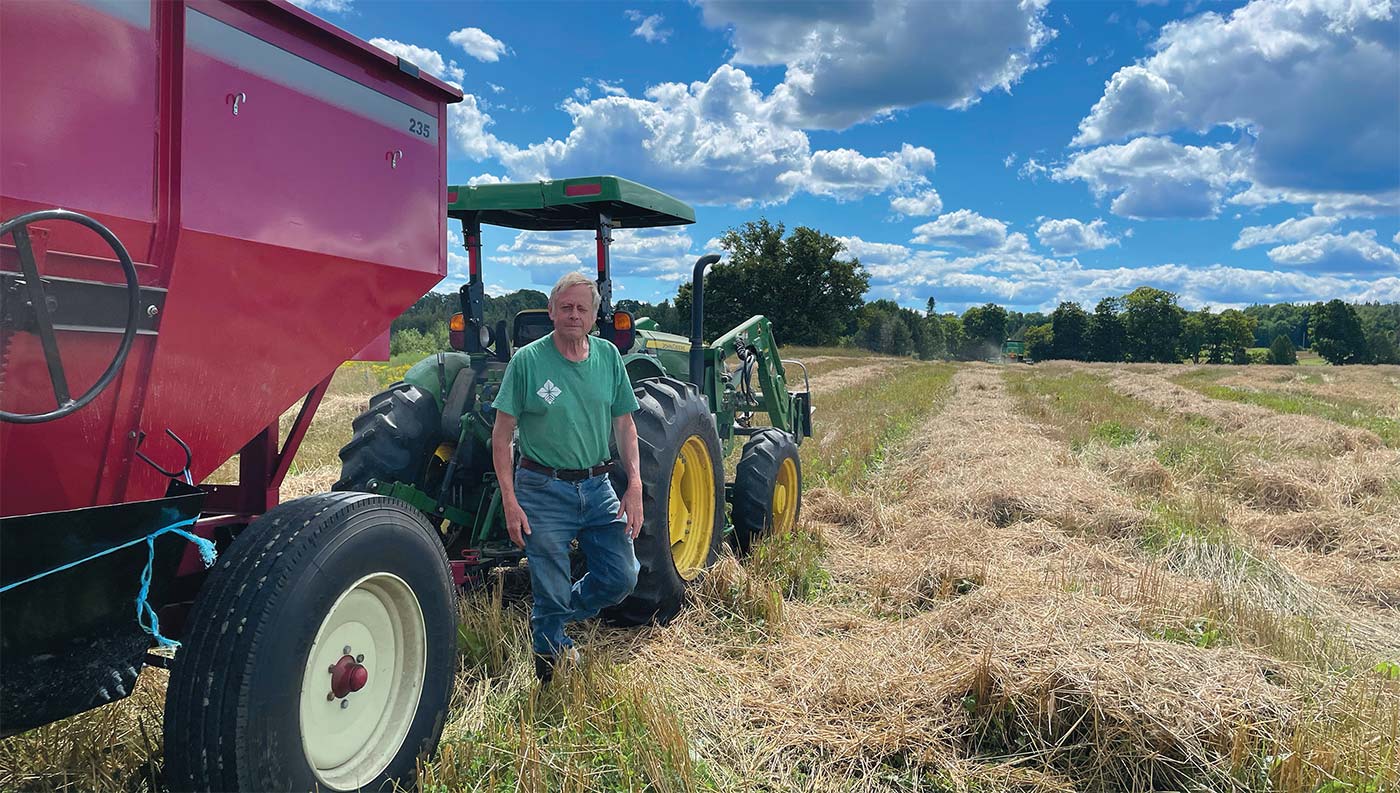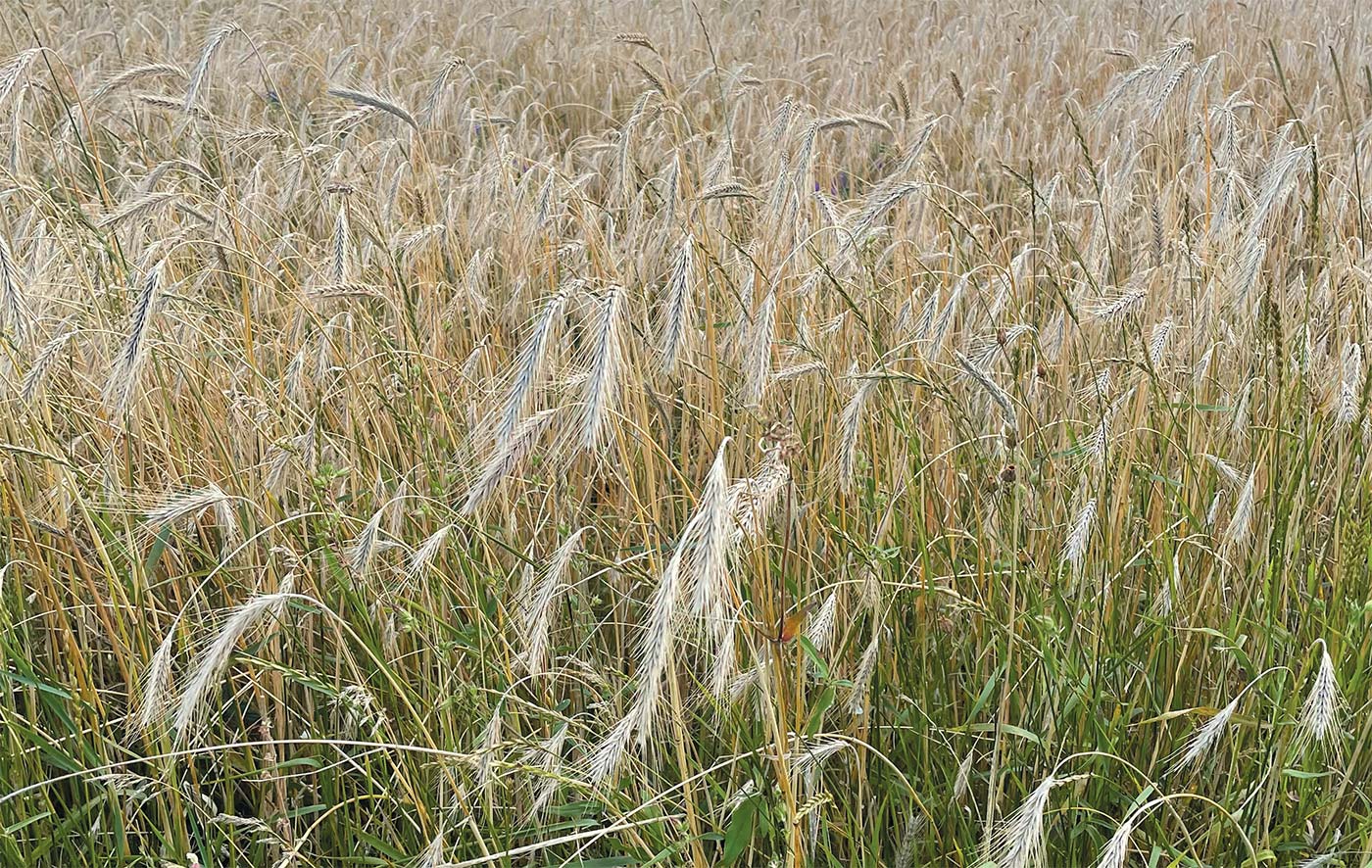Why Organic Grain is Important to Vermont
“Soil is a living system, and as with our bodies, if we take care of it, the plants that grow in it thrive, are nutrient dense, and offer something healthy to those who eat them. Taste tests have shown that bread baked with organically grown grains has better flavor than bread made with grain that is grown conventionally.” –Todd Hardie
A majority of agriculture in the United States depends on chemicals that push plants to grow rather than feeding the soil. We use fertilizers, insecticides, fungicides, bactericides, miticides, virucides, and other chemicals to grow crops that we eat and feed to animals.
“Conventional” farming that does not follow organic practices supports a poor diet, malnutrition, increased rates of cancer, a shortened life span, the demise of honeybees and pollinating insects, polluted water, and the erosion of topsoil. If you look at the overall picture of agriculture in the United States, it is something that gives an immediate, short-term gain, but loss and deterioration follow.
A close relationship with honeybees has confirmed my belief in the wisdom of organic practices. Thirty years ago, we started to see a decline in honeybees as mite levels rose in the beehives. Many beekeepers began a chemical program to kill the mites, but this contaminated the environment and brought it out of balance. The result was that honeybees lost their immunity to resist the mites, and mite levels rose again. As a nation, we use toxic chemicals to kill mites and other insects rather than find long-term solutions for restoring soil, water, and air health that supports the strength of honeybees and other living things. I raise queen bees from survivors and see the bees get stronger every year. There are no chemicals used on my bees.
Soil is a living system, and as with our bodies, if we take care of it, the plants that grow in it thrive, are nutrient dense, and offer something healthy to those who eat them. Taste tests have shown that bread baked with organically grown grains has better flavor than bread made with grain that is grown conventionally.
Roundup® is an approved chemical used to ripen grain uniformly before harvest. On the farm where we have grown grain, we have never seen a need to spend thousands of dollars to ripen the grain evenly. We do not drive into the fields and damage the crop, or use chemicals that are known to increase cancer in the farmers applying them and those who eat the crops, as well as causing more gluten intolerance.
The Northern Grain Growers Collaborative is a vibrant network of growers, bakers, researchers, millers, maltsters, distillers, researchers, seed preservationists, and food system enthusiasts rooted in Vermont. The focus is on all aspects of grain production and on cultivating collaboration within the grain community across the northern region. The mission is to promote the growth and renewal of grain cultivation by supporting farmers through education, variety trials, and by building a network of collaborators throughout the grain economy.
We need to increase the use of organic practices on our land. Organic acreage comprises only about a half-percent of overall U.S. farming acreage (source: USDA - National Agricultural Statistics Service, 2017). The estimated percentage of organic farmland in Vermont is 13 percent. Vermont Organic Farmers, the USDA accredited certification program owned by NOFA-VT, certified 159,165 acres in 2022. That same year, UVM Extension reported 1,173,890 acres of farmland in Vermont.
University of Vermont Extension and Heather Darby and team have provided leadership for more organic grain in Vermont. They are working with farmers across the state and the region, conducting field trials and research, organizing a yearly crops and soils field day at Borderview Farm in Alburgh, and supporting Northern Grain Growers Collaborative.
“We must begin to talk about the importance of organic farming practices and take the steps toward health for ourselves and the land.” –Todd Hardie

On the winter rye harvest day, Todd Hardie waits for the combine to arrive at Thornhill Farm in Greensboro. PHOTO: WENDY BRATT
Growing grain organically in Vermont involves many challenges. Smaller farms and fields face proportionately higher costs of operation and a lack of infrastructure for processing. You can help support our organic farms by seeking out bread and pasta made with organic grain. There are bakeries all around Vermont that offer bread made with organic grain. When you go to a co-op, farm stand, or store with healthy food, you will likely find these products. Help increase their availability by encouraging other stores to offer bread made with organic grain.
It takes a long time to turn a ship around, but we are beginning. It is important to have understanding for dairy, grain, vegetable, maple, and all farmers who are using chemicals and farming conventionally. The USDA is supporting the transition from conventional farming to organic with the Transition to Organic Partnership Program (TOPP). I mentor a grain farmer in Vermont who is making this transition and now farms organically.
We must begin to talk about the importance of organic farming practices and take the steps toward health for ourselves and the land. It is time for this paradigm shift. We have to gather our courage to be on the path to supporting organic grain and agronomy for the health of our people, soil, pollinators, and all living systems.





